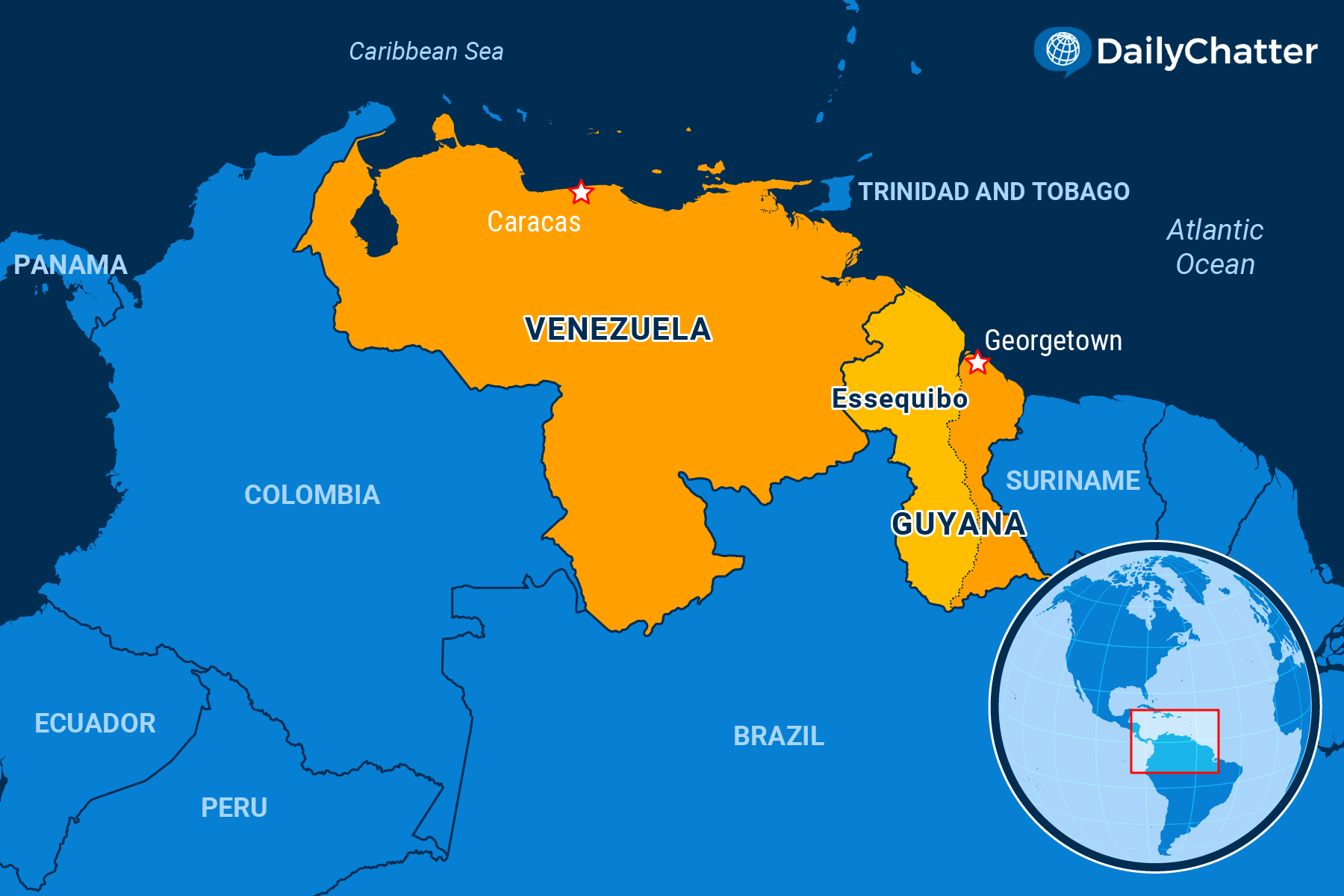Need to Know
January 02, 2024Envy Thy Neighbor
GuyanaVenezuela

|
Listen to Today's Edition
|
Venezuelan President Nicolas Maduro and Guyanese President Irfaan Ali recently committed to refrain from resorting to force to settle their dispute over the oil-rich Essequibo region on the border between the two South American countries.
As the BBC explained, Essequibo is a 60,000-square-mile area of jungle that comprises around a third of Guyana’s land mass. Venezuela has long claimed the region, but renewed its interest when American multinational corporation ExxonMobil discovered oil in the waters off Essequibo.
These riches have transformed Guyana. The former British colony’s gross domestic product increased by 62 percent in 2022. In 2023, GDP is forecast to grow by 37 percent. These are the highest growth figures on the planet, wrote El País. Around 35,000 Venezuelans have migrated to the country to find jobs and other economic opportunities.
In early December, after a referendum in which Venezuelans voted overwhelmingly to annex the territory, Maduro ordered Venezuelan energy companies to prepare to enter Essequibo to begin drilling and mining for minerals, Al Jazeera reported. Maduro, a dictator who runs his resource-rich – but economically struggling – socialist country with an iron hand, gave Guyanese companies now working there three months to leave, added Voice of America.
The move might have been tailored for domestic consumption, contended the Financial Times. Between Venezuela’s poor economy, Maduro’s suppression of human rights, and a massive exodus of Venezuelan migrants, Maduro needs a cause to rally support.
As a result, Maduro even had printed a new map of Venezuela that includes Essequibo. “I have immediately ordered for it to be published and taken to all schools, colleges, community councils, public establishments, universities and in all homes in the country,” he said, according to the Guardian.
Ali rejected the idea immediately, mobilizing his military and appealing to the US and United Nations for help, Bloomberg wrote. American officials offered Guyana support as Brazil deployed troops along its borders with Guyana and Venezuela in case a conflict erupted.
Venezuela is much stronger than Guyana, the National Review magazine noted. The former has a military with 350,000 personnel while the latter has only 4,000 troops. Still, argued Responsible Statecraft, the campaign would not be easy. No roads lead from Venezuela to Essequibo, so the terrain prevents Venezuela from utilizing its battle tanks or other heavy artillery.
Maduro and Ali then convened a day-long summit on the island of St. Vincent and the Grenadines in the Caribbean where they committed to peace, reported CNN. Guyana maintained that the International Court of Justice should mediate the dispute, but Venezuela doesn’t recognize the court’s jurisdiction.
In the meantime, Guyana has plenty of cash to pay for more weapons and training.
Not already a subscriber?
If you would like to receive DailyChatter directly to your inbox each morning, subscribe below with a free two-week trial.
Support journalism that’s independent, non-partisan, and fair.
If you are a student or faculty with a valid school email, you can sign up for a FREE student subscription or faculty subscription.
Questions? Write to us at hello@dailychatter.com.

